Earlier in the year, the Irish Farmers Journal spoke to Laois woman Kelly Gorman who was milking 1,200 goats on DNC Farms, which is located on New Zealand’s South Island.
Since finishing up the kidding season, Kelly has completed her green cert online with Gurteen Agricultural College and has spent several months calving cows and drawing silage with Gavins Ltd.
The goat farm
"I done the kidding, which lasted about six or seven weeks.
"It was unreal, we had 700 kids born within the first three weeks.
"There was one day on the farm and we had 140 kids born, it was just crazy.
"For the kidding, all the goats are in the shed and you go in every hour or two to see what’s happening.
"There is a rule on the farm, every goat that has a kid has to be checked to make sure there is no more kids in her.
"We spray them and any good-looking males or females get collars and are kept for replacements.
"Some of the old goats that are really over-weight would need assistance.
"You have to be really careful with the goats, when you are pulling the kids, if you pull them really hard or fast you will rip the goat and the vet will have to come out and stitch her."
Intense but good
"It was very intense, but I did like it. We didn’t upset the goats at night time, we would check them late after milking was finished and that was it then until the next morning.
"You have to check on cows, but with goats they should be ok and manage through the night without help.
"If you go into a shed with 1,700 goats and check them you will create uproar and they will be stressed out."
Calving in Morrinsville
After the kidding season came to an end, Kelly spent the next couple of months on a dairy farm in Morrinsville, which is one of the North Island's dairy capitals.

"I finished up the kidding. My boss also has a cow farm, so he needed help there with calving.
"I said I would go and do it. I left the goat farm at the end of July and done the calving for two months.
"I was based in Mournsville, which is one of the dairy capitals.
"The farm has 220 Fresian cows. It was a very good farm to learn on because the manager there would bring you around and show you anything you didn’t know."
Learning something new
"I learnt a lot about grass measuring on the farm. I really learned how to do it properly and go set up paddocks myself.
"The farm manager would tell me to go off and set up a paddock and then he would come down and check them to see if they were done properly.
"He was so good to me, he gave me such a chance. At home if there was cows down with milk fever the farmers would go and sort it out themselves and, from my own experience, they would never bring me out to the paddock and show me what to do, whereas he did.
"One day, he brought me out and there was a cow down with milk fever.
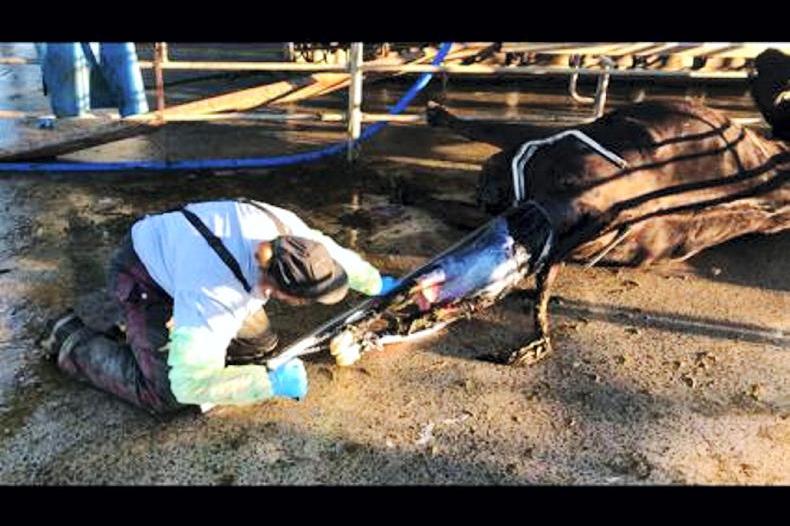
"He showed me how to give her calcium straight into the vein in the neck and if you can never find that vein you can inject into the cow's milk vein, in the bottom of her stomach."
Being given a chance
"The biggest thing I took away from my experience there was how to calve a cow properly.
"Back home, I done a lot of milking and calf rearing, but when you are back home people are too busy to give you a chance to go and calve a cow yourself.
"I was allowed to go and bring in a cow that I thought was going to calve, estimate how long I thought it was going to take her.
"At the end of calving before I was going, the manager took a few days off and left me to run the whole show.
"There was only a few left to calve, but he trusted me to run the farm. If you are never given a chance, you are never going to learn."
Contracting for Gavins Ltd
"I finished up there at the end of September and then I left because silage season was starting and I applied for a job with Gavin’s Ltd, which is a contracting company in Hamilton.
"They are a huge outfit that do maize, silage, horticulture, goats, strawberries, groundworks, everything."
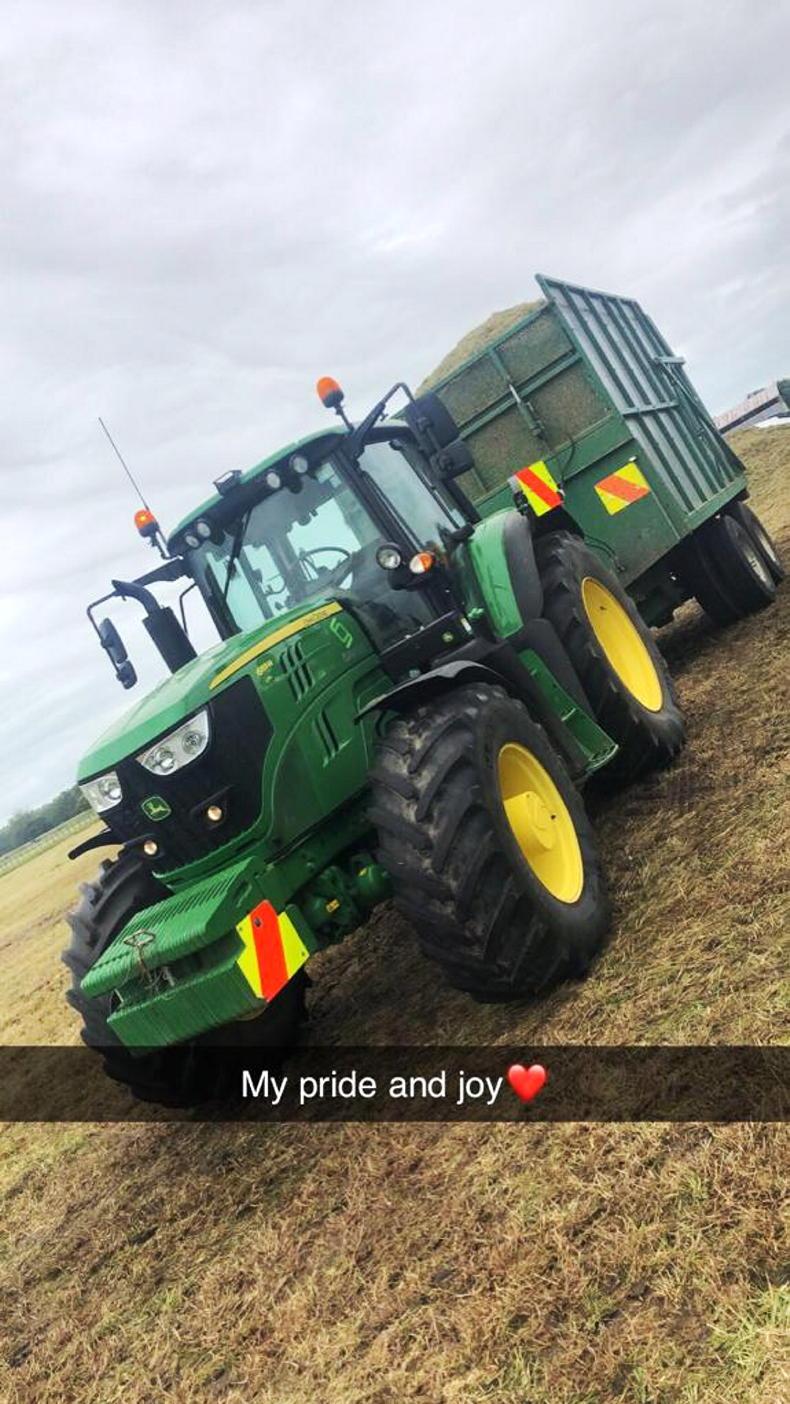
"It was crazy, we were doing 100 hours in six days.
"We literally travelled the whole of the North Island drawing grass for different farmers. We started off the season with 70- and 80-hour weeks, but by the end of it we were doing 100 hours in six days.
"Silage is finished now because it is really hot, but I think we finished at like 6,000 hectares, which was mowed and picked up.
"I was driving a John Deere M-Series for most of the season, you would be always chopping and changing."
Silage on the hills
"The hills that we have to drive on over here are ridiculous.
"I nearly turned over my bin one day when my trailer was full. I just turned on the hill and the whole trailer went to one side, but I just put down the foot and kept going, it straightened itself back up."
The difference between Ireland and New Zealand
"The difference between Irish silage and over here is, at home you would stop for dinner and a cup of tea, but here there is no stopping, you start at half 6 in the morning and you don’t stop until 12 or 1 o’clock at night.
"I loved it and I loved the people I was working with, we all had RTs and we would have a bit of craic on them.
"There was only myself and another girl from Tipperary that were Irish working there - they usually bring in over 15 seasonal staff, but because of COVID they couldn’t get any. That is why we were all so under pressure with hours.
"Gavins are the biggest agricultural set-up in the southern hemisphere. There is five harvesters, which are all 960 CLAAS, and there is 56 tractors, which are mostly John Deeres and a couple of Fendts and a lot of silage trailers."
Plans for the coming months
"We are finished the silage now, but I want to apply for a work permit, which means I would have to go into dairy full-time. I put up an ad the other day and now I have a couple of interviews lined up.
"It was great to get the experience doing silage and everything, but now I want to work more towards becoming a dairy farm manager."
Christmas and COVID
"I do hope to go home at some stage, but it won't be for another 12 months at least.
"We had a six-week lockdown back last March and this place was shut down, there was guards and military out on every road section. If you left your house, they would pick you up and put you in jail.
"Since March, there has been a few cases, there is 59 cases at the moment and they are all in isolation.
"For Christmas I am travelling around the coastline of the South Island, I am in Wanika at the moment, which is heading for the west coast, so wherever we end up we will stop, put up a tent and be merry.
"I do miss home. As soon as the borders open up, I will get my mother a plane ticket to come over to visit.
"Christmas will be different this year, I love my family and I miss them all. I would like to thank them for supporting me continuously throughout my journey and I hope 2021 will be a better year for everyone."
Read more
Laois woman takes on 1,200 goats in New Zealand
Earlier in the year, the Irish Farmers Journal spoke to Laois woman Kelly Gorman who was milking 1,200 goats on DNC Farms, which is located on New Zealand’s South Island.
Since finishing up the kidding season, Kelly has completed her green cert online with Gurteen Agricultural College and has spent several months calving cows and drawing silage with Gavins Ltd.
The goat farm
"I done the kidding, which lasted about six or seven weeks.
"It was unreal, we had 700 kids born within the first three weeks.
"There was one day on the farm and we had 140 kids born, it was just crazy.
"For the kidding, all the goats are in the shed and you go in every hour or two to see what’s happening.
"There is a rule on the farm, every goat that has a kid has to be checked to make sure there is no more kids in her.
"We spray them and any good-looking males or females get collars and are kept for replacements.
"Some of the old goats that are really over-weight would need assistance.
"You have to be really careful with the goats, when you are pulling the kids, if you pull them really hard or fast you will rip the goat and the vet will have to come out and stitch her."
Intense but good
"It was very intense, but I did like it. We didn’t upset the goats at night time, we would check them late after milking was finished and that was it then until the next morning.
"You have to check on cows, but with goats they should be ok and manage through the night without help.
"If you go into a shed with 1,700 goats and check them you will create uproar and they will be stressed out."
Calving in Morrinsville
After the kidding season came to an end, Kelly spent the next couple of months on a dairy farm in Morrinsville, which is one of the North Island's dairy capitals.

"I finished up the kidding. My boss also has a cow farm, so he needed help there with calving.
"I said I would go and do it. I left the goat farm at the end of July and done the calving for two months.
"I was based in Mournsville, which is one of the dairy capitals.
"The farm has 220 Fresian cows. It was a very good farm to learn on because the manager there would bring you around and show you anything you didn’t know."
Learning something new
"I learnt a lot about grass measuring on the farm. I really learned how to do it properly and go set up paddocks myself.
"The farm manager would tell me to go off and set up a paddock and then he would come down and check them to see if they were done properly.
"He was so good to me, he gave me such a chance. At home if there was cows down with milk fever the farmers would go and sort it out themselves and, from my own experience, they would never bring me out to the paddock and show me what to do, whereas he did.
"One day, he brought me out and there was a cow down with milk fever.

"He showed me how to give her calcium straight into the vein in the neck and if you can never find that vein you can inject into the cow's milk vein, in the bottom of her stomach."
Being given a chance
"The biggest thing I took away from my experience there was how to calve a cow properly.
"Back home, I done a lot of milking and calf rearing, but when you are back home people are too busy to give you a chance to go and calve a cow yourself.
"I was allowed to go and bring in a cow that I thought was going to calve, estimate how long I thought it was going to take her.
"At the end of calving before I was going, the manager took a few days off and left me to run the whole show.
"There was only a few left to calve, but he trusted me to run the farm. If you are never given a chance, you are never going to learn."
Contracting for Gavins Ltd
"I finished up there at the end of September and then I left because silage season was starting and I applied for a job with Gavin’s Ltd, which is a contracting company in Hamilton.
"They are a huge outfit that do maize, silage, horticulture, goats, strawberries, groundworks, everything."

"It was crazy, we were doing 100 hours in six days.
"We literally travelled the whole of the North Island drawing grass for different farmers. We started off the season with 70- and 80-hour weeks, but by the end of it we were doing 100 hours in six days.
"Silage is finished now because it is really hot, but I think we finished at like 6,000 hectares, which was mowed and picked up.
"I was driving a John Deere M-Series for most of the season, you would be always chopping and changing."
Silage on the hills
"The hills that we have to drive on over here are ridiculous.
"I nearly turned over my bin one day when my trailer was full. I just turned on the hill and the whole trailer went to one side, but I just put down the foot and kept going, it straightened itself back up."
The difference between Ireland and New Zealand
"The difference between Irish silage and over here is, at home you would stop for dinner and a cup of tea, but here there is no stopping, you start at half 6 in the morning and you don’t stop until 12 or 1 o’clock at night.
"I loved it and I loved the people I was working with, we all had RTs and we would have a bit of craic on them.
"There was only myself and another girl from Tipperary that were Irish working there - they usually bring in over 15 seasonal staff, but because of COVID they couldn’t get any. That is why we were all so under pressure with hours.
"Gavins are the biggest agricultural set-up in the southern hemisphere. There is five harvesters, which are all 960 CLAAS, and there is 56 tractors, which are mostly John Deeres and a couple of Fendts and a lot of silage trailers."
Plans for the coming months
"We are finished the silage now, but I want to apply for a work permit, which means I would have to go into dairy full-time. I put up an ad the other day and now I have a couple of interviews lined up.
"It was great to get the experience doing silage and everything, but now I want to work more towards becoming a dairy farm manager."
Christmas and COVID
"I do hope to go home at some stage, but it won't be for another 12 months at least.
"We had a six-week lockdown back last March and this place was shut down, there was guards and military out on every road section. If you left your house, they would pick you up and put you in jail.
"Since March, there has been a few cases, there is 59 cases at the moment and they are all in isolation.
"For Christmas I am travelling around the coastline of the South Island, I am in Wanika at the moment, which is heading for the west coast, so wherever we end up we will stop, put up a tent and be merry.
"I do miss home. As soon as the borders open up, I will get my mother a plane ticket to come over to visit.
"Christmas will be different this year, I love my family and I miss them all. I would like to thank them for supporting me continuously throughout my journey and I hope 2021 will be a better year for everyone."
Read more
Laois woman takes on 1,200 goats in New Zealand




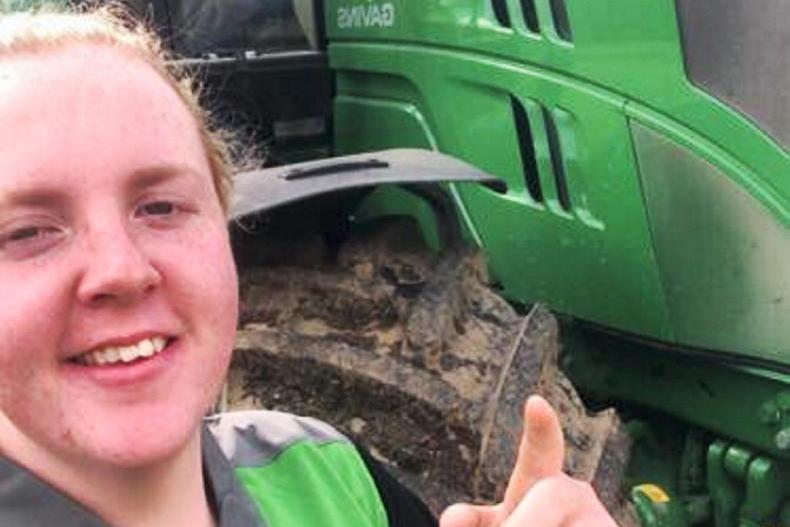




 This is a subscriber-only article
This is a subscriber-only article






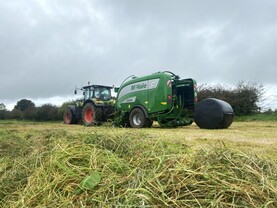
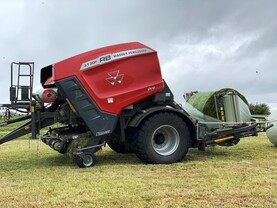


SHARING OPTIONS: